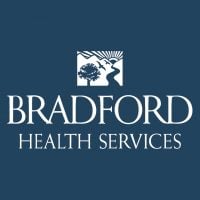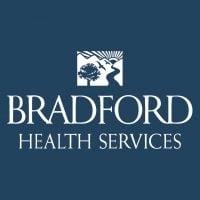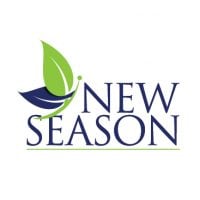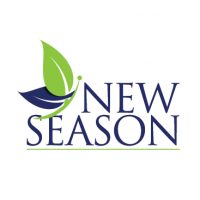The Bridge - Gadsden
Drug Rehab Center in Gadsden, Alabama
- Substance Abuse
- Opioid Addiction
- Dual Diagnosis
- Drug Addiction
- Alcoholism
The Bridge - Gadsden, Alabama offers individualized substance and alcohol abuse treatment programs, including evidence-based therapies, counseling, medication-assisted treatment, peer support, life skills development and educational classes, accredited by CARF and The Joint Commission's Gold Seal of Approval program, and providing numerous partnerships with local organizations to help each person make a successful transition to sobriety.
About The Bridge - Gadsden in Alabama
The Bridge - Gadsden in Gadsden, Alabama is a 32 bed facility that has been providing quality addiction treatment services since 1974. It offers a comprehensive range of services for substance abuse and addiction including Inpatient Levels of Care, Dual Diagnosis, Drug Rehab, and Aftercare Support. Additionally, the facility is accredited by The Bridge and accepts private health insurance for those seeking treatment.
The Bridge - Gadsden provides a broad spectrum of services for substance abuse and addiction, tailored to meet the individual needs of those in recovery. Services include individual, group, and family therapy as well as relapse prevention strategies and holistic approaches such as meditation and yoga. They also offer a variety of evidence-based treatments for addiction, such as Cognitive Behavioral Therapy and Dialectical Behavioral Therapy. The facility is licensed by the Addiction Technology Transfer Center, ensuring that they provide the most effective and current treatments available.
Genders
Ages
Modality
Additional
Conditions and Issues Treated
Some addicts can benefit from substance abuse treatment, which is designed to help them become and remain sober without the use of medications. These programs are typically used by those struggling with drugs like marijuana or hallucinogens. However, they might be beneficial for those with a co-occurring mental health disorder like schizophrenia, major depression or bipolar disorder.
During this type of treatment, the addict will meet with therapists and other professionals on a regular basis to learn coping skills and healthy ways to deal with their addiction and mental health disorder.
Treatment programs often combine medications with counseling, support groups and even medical services like those found in hospitals or doctor’s offices. There are also detoxification services that addicts can use to get sober and avoid severe withdrawal symptoms.
Opioids are a group of drugs that include substances such as heroin, morphine, and oxycodone. These drugs activate opioid receptors in the brain, which produce pleasurable feelings. Opioid addiction occurs when drugs are abused at increasing rates or increasing amounts because the body becomes tolerant of them.
Opioid addiction is typically diagnosed when drug abuse becomes a typical behavior that interferes with an individual’s ability to function daily. The use of the substance results in consequences like legal problems.
Treatment for opioid addiction varies depending on each individual’s needs. Some treatments focus on replacing opioids with other drugs that have similar effects of reducing withdrawal symptoms. Other treatments aim to reduce the risk of relapse by providing psychological support or using more natural methods.
A drug rehab center that uses Dual Diagnosis is more likely to be successful in rehabilitating a person. Dual diagnosis helps to identify and treat any co-occurring disorders. It is essential to screen for both addiction and any untreated mental health issues. A dual diagnosis gives rehab the means to treat addiction while restoring mental and emotional health.
About 70% of patients with drug addiction have at least one other psychiatric diagnosis. Fortunately, dual diagnosis treatment is a proven model that has been highly effective.
Levels of Care Offered
This center offers a variety of custom treatment tailored to individual recovery. Currently available are Aftercare Support, Drug Rehab, Dual-Diagnosis, Inpatient, with additional therapies available as listed below.
Inpatient rehab means you live there while your addiction or co-occurring disorder is treated. Prescribed medications are used along with counseling.
This type of rehabilitation provides a drug-free environment for people who struggle with chronic/long-term addiction (or their own home). Jobs or school can be put on hold until after the stay to focus solely on recovery.
Aftercare Support in drug rehab is crucial because it helps people stay sober after treatment. Aftercare Support in drug rehab is helpful because it provides the recovering person with a support group, including family members, friends, and other peers who are also in recovery.
The benefits of Aftercare Support are that it provides a pathway that will help people get sober for life. It supports healing at all levels, physical, mental, emotional, and spiritual. Another benefit of Aftercare Support is that participants learn to maintain their sobriety through holistic methods. They learn to modify behaviors individually to have peace of mind, have positive relationships with others, and find peace on the inside.
Therapies & Programs
During individual therapy at The Bridge - Gadsden in , the person in recovery meets with a therapist one on one to go over their situation and learn from past mistakes. The counselor or therapist will use this time to address the causes of addiction, triggers, and any mental issue or dual diagnosis. They will also address aftercare plans, giving them the best chances of long-term sobriety.
This therapeutic process is very intense and challenging to go through. Some clients may find it easier to open up with someone apart from their family or loved ones who understand their struggles and experience with addiction.
Family therapy is designed to help addicts get clean and sober by using what they love the most; their family. Most drug treatment centers make it mandatory that the addict’s family attend therapy sessions, which is great because having everyone there to support them makes it much easier for them to get clean. Not only are they surrounded by people who want them to get better, but everyone is there because they want the best for them, not because they feel like they have to be.
Drug addicts are often surrounded by resentful or uneducated family members who would, at times, rather see them stay addicted because it makes their own lives easier. Sometimes they don’t understand what the addiction is or how they play a part in it. They know that during and after the addict’s sobriety journey, they will face challenges and changes that they aren’t sure how to handle. This can be very tough for an addict to go through on their own, which is why it’s so important that they have the support of their family. Just because someone is an addict does not mean that they don’t deserve the love and support of those around them.
Addicts in Gadsden, AL can find support in group therapy at The Bridge - Gadsden by finding peers who understand their situation and being held accountable. They also learn to develop faith, understanding, and insight into their addiction through shared conversations.
Group Therapy is employed by drug treatment centers to provide the recovering addict with a platform to talk about their feelings and experiences. It also provides for an opportunity to learn from other addicts who have successfully overcome their addiction. It is recommended that all group members be recovering addicts for this type of therapy to work.
Many people who struggle with addiction in Gadsden, Alabama also have trouble managing their daily responsibilities after treatment. With this type of therapy, addicts are taught how to manage their time, attain specific goals, and take care of all facets of their lives without the influence of drugs or alcohol.
During these sessions, therapists will work with addicts to identify personal values and goals. They will then help addicts set goals for achieving those values and standards. In the process, therapists help addicts develop strategies for fulfilling their goals and successfully managing their responsibilities.
In many cases, this type of therapy is used in conjunction with other types of addiction treatment services to address specific issues that affect a recovering addict’s ability to stay sober.
Payment Options Accepted
For specific insurance or payment methods please contact us.
Is your insurance accepted?
Ask an expert, call (888) 674-0062
The Bridge Associated Centers
Discover treatment facilities under the same provider.
- The Bridge - Fort Payne Recovery Center in Fort Payne, AL
- The Bridge - Tuscaloosa in Tuscaloosa, AL
- The Bridge - Mobile Addictions Treatment Center in Mobile, AL
- The Bridge - Newman Road in Mobile, AL
- The Bridge - Gadsden in Gadsden, AL
Learn More About The Bridge Centers
Additional Details
Specifics, location, and helpful extra information.
Gadsden, Alabama 35904 Phone Number(256) 564-6324 Meta DetailsUpdated November 25, 2023
Staff Verified
The Bridge - Gadsden Patient Reviews
There are no reviews yet. Be the first one to write one.
Gadsden, Alabama Addiction Information
Opioids, such as heroin, fentanyl, and prescription opioids are related to more than half of all drug-related overdoses in Alabama. Alcohol is the most frequently used substance in Alabama; 85,000 Alabamians use cocaine every single year. In Alabama, there are four times as many vehicle crashes involving alcohol as there are normal vehicle crashes.
The drug addiction problem in Gadsden, Alabama, is relatively bad. About, 988 drug overdose deaths in the city in 2016. This equates to a rate of 10.8 deaths per 100,000 population. In Gadsden, Alabama, specifically, drug use has increased dramatically over the past decade. Drug treatment in Gadsden, AL, can be customized and largely depend on a person's unique needs.
Treatment in Nearby Cities
- Lineville, AL (54.2 mi.)
- Ardmore, AL (79.9 mi.)
- Jasper, AL (76.3 mi.)
- Fort Rucker, AL (189.6 mi.)
- Atmore, AL (228.6 mi.)
Centers near The Bridge - Gadsden



The facility name, logo and brand are the property and registered trademarks of The Bridge - Gadsden, and are being used for identification and informational purposes only. Use of these names, logos and brands shall not imply endorsement. RehabNow.org is not affiliated with or sponsored by The Bridge - Gadsden.



